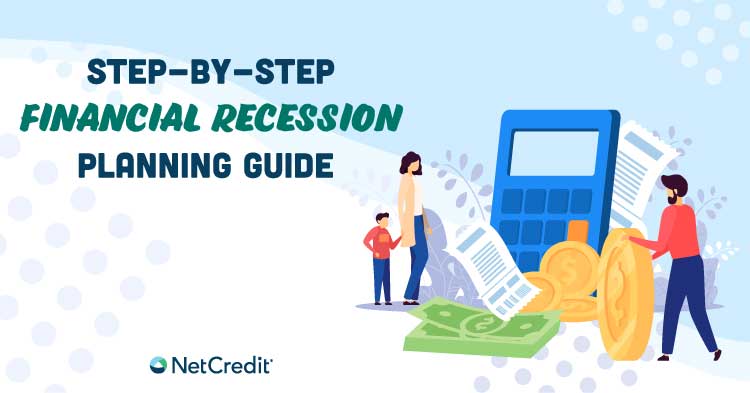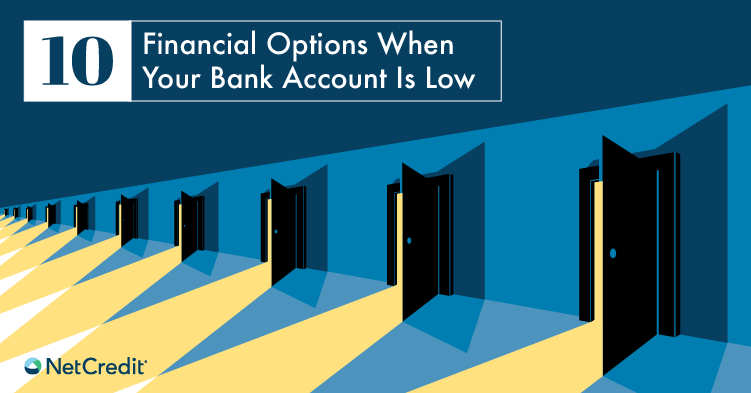The economy has an enormous impact on our everyday lives, from our spending and savings habits, to career opportunities, incomes and investments. A slow or poor economy leads to higher unemployment levels, wage stagnation, limited business growth and other negative fiscal effects.
Although these issues can make it difficult to plan ahead, you should still make a realistic plan for the future you want. Use this guide to make a short-term financial plan in an uncertain economy.
1. Establish Your Financial Goals
Evaluate Your Priorities
Your financial strategy will depend on your financial goals, whether you dream of owning a home, starting a family or doing something else entirely. Identify your main financial priorities: What goals are most important to you, regardless of the current economic state?
Set Your Goals
Once you’ve identified your financial priorities, take the time to work out a budget that helps you reach your goals. Estimate the time and amount you’ll need to save in order to accomplish each goal. Aim to include both short- and long-term goals, like a few months to a few years down the line.
2. Set Up a Solid Financial Foundation
Maintain or Establish Your Emergency Fund
If you lost your source of income, would you have enough savings to last until you found a new job? An emergency fund is essential whether the economy is in good or bad shape.
While it may seem like a lot, experts suggest keeping an emergency fund worth three to six months of your normal expenses. If your fund is low, aim to save money from each paycheck, whether it’s $5 or $50 a month.
Find Local Financial and Emergency Resources
Your financial plan should also include a list of emergency and financial resources such as your state’s unemployment agency to help you in a time of need. Ideally, you’ll never need to use them, but at least you’ll be prepared in case the time comes.
Save for Retirement
Regardless of the state of the economy, you should regularly contribute to some type of retirement savings fund. The earlier you start on the fund, the more you’ll likely have saved for retirement. While it might be tempting to change or stop your monthly retirement contributions in a slow economy, experts recommend resisting the urge to react to market volatility.
Watch Your Debt
Although you can borrow money when your budget is tight, avoid increasing your revolving debt balance in a slow economy. Consider using credit, like personal loans or credit cards, for emergency purposes only. If possible, work to pay off high-interest debt first to help save money over time.
Keep Tabs on Your Credit
You should always keep an eye on your credit score, but good credit is especially important in a slow economy. A good credit rating can help you save money, get a job, secure a lease and more. If you don’t have a good score, you can improve your credit by making payments on time, keeping your credit utilization low and other good financial habits.
3. Map Your Career
Update Your Resume
It’s a good idea to update your professional resume every six months to a year, regardless of the economy. Maintain a portfolio of recent professional achievements so you can easily reference them during an interview or networking event.
Consider Career-Related Education
Do you have the required education and/or training for your desired occupation? Can you advance at your current job with more advanced professional skills? Research a few job postings for similar jobs in order to learn about the soft skills, programs, tools or other requirements that employers are looking for today.
4. Grow Your Income
Look for Additional Revenue Streams
Losing a job is never easy, but it’s much more serious if you depend on one source of income. Multiple revenue streams can help mitigate the effects of losing a job, whether you have an income-generating hobby, a part-time job or some source of passive income, like rental income from an extra room in your home.
Explore Low-Risk Investment Options
While some investment products are risky and/or best suited for financial experts, it’s possible to grow your savings account by doing absolutely nothing. Today’s leading high-interest savings accounts are available from FDIC-insured online banks. Other low-risk or low-budget investment options include savings bonds and certificates of deposit.
The information in this article is provided for educational and informational purposes only, without any express or implied warranty of any kind, including warranties of accuracy, completeness or fitness for any particular purpose. The information in this article is not intended to be and does not constitute financial, legal or any other advice. The information in this article is general in nature and is not specific to you the user or anyone else.
DISCLAIMER: This content is for informational purposes only and should not be considered financial, investment, tax or legal advice.






